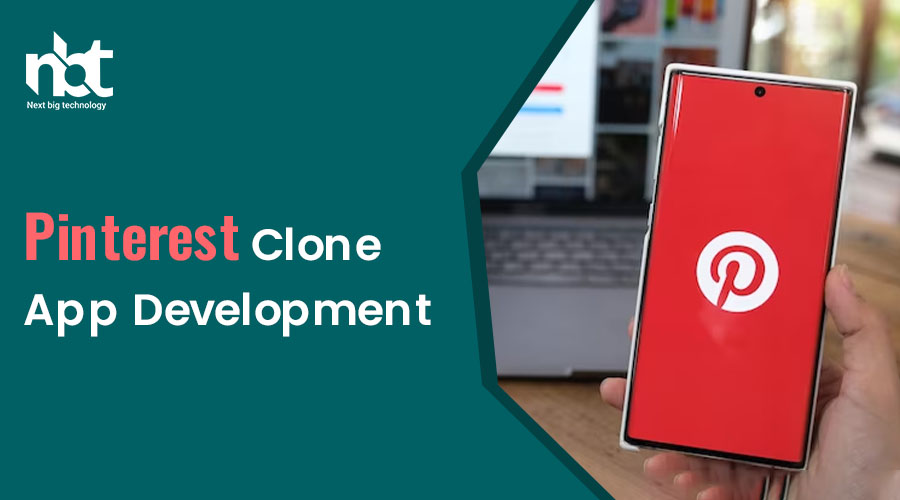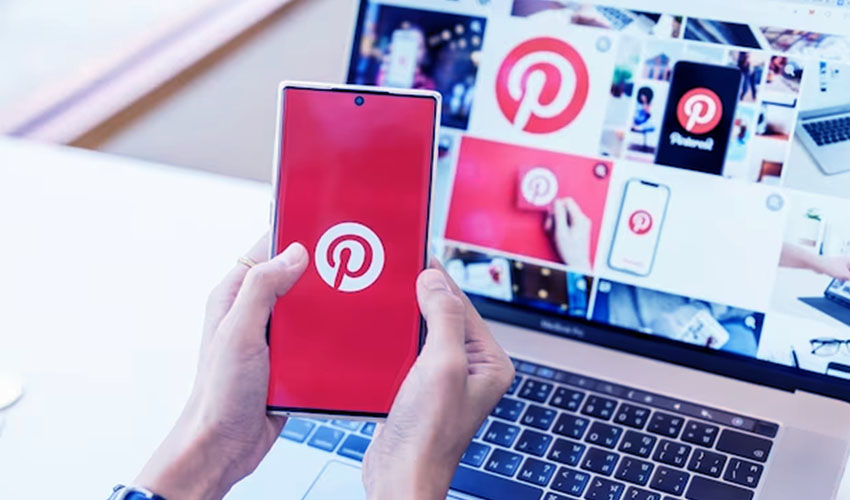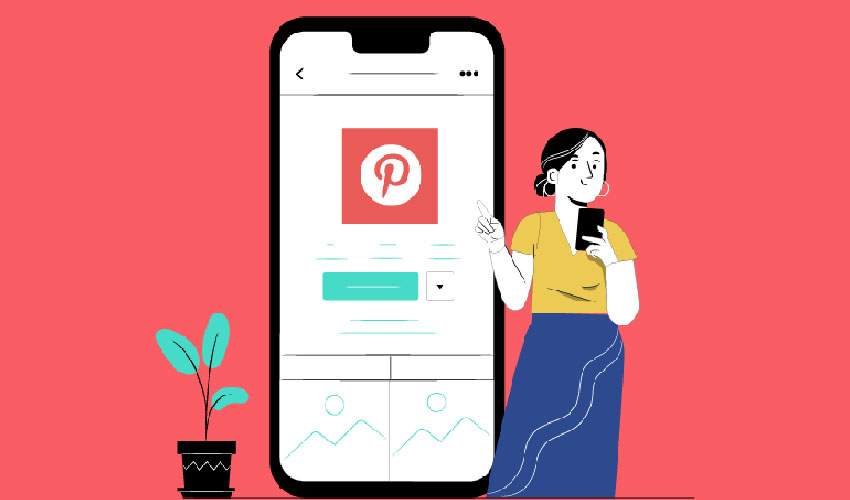Table of Contents
Pinterest Clone App Development Services
In the rapidly evolving world of social media and visual content, Pinterest stands out as a unique platform that has captured the imagination of millions. Its innovative approach to content discovery and curation has inspired many entrepreneurs to explore the possibilities of creating their niche social platforms. Pinterest clone app development services have emerged as a solution to bring these entrepreneurial dreams to life.
The Rise of Pinterest and its Unique Appeal
Pinterest, with its emphasis on visual content and user-generated boards, has become a go-to platform for users seeking inspiration for everything from home décor to fashion, recipes, and travel. Its success lies in its ability to connect users with visually appealing content that aligns with their interests.
The Need for Pinterest Clone App Development Services
Entrepreneurs and businesses are recognizing the potential of creating niche social platforms that cater to specific interests and demographics. This is where Pinterest clone app development services play a crucial role. These services provide the technical expertise and customization required to build a unique and user-friendly platform tailored to the client’s vision.
Key Features of Pinterest Clone App Development
- User-Friendly Interface: Pinterest clone app development ensures an intuitive and easy-to-navigate interface, promoting user engagement and satisfaction.
- Visual Content Integration: Just like Pinterest, the clone app emphasizes visual content, allowing users to upload, share, and discover images and videos related to their interests.
- Customizable Boards: Users can create personalized boards to curate content based on their preferences, fostering a sense of individuality and creativity.
- Social Integration: Seamless integration with other social media platforms enhances user connectivity, allowing for easy sharing and cross-platform engagement.
- Search and Discovery: Advanced search algorithms help users discover relevant content, ensuring a dynamic and engaging user experience.
- Monetization Options: Pinterest clone app development services often include features for monetization, such as sponsored content, ads, and premium memberships, providing revenue streams for the platform owner.
Benefits of Pinterest Clone App Development
- Brand Building: Entrepreneurs can build a unique brand identity by creating a platform tailored to their target audience’s interests.
- Revenue Generation: Monetization options provide sustainable revenue streams for platform owners.
- Scalability: Pinterest clone apps are designed to be scalable, accommodating growth and an expanding user base.
- Community Engagement: Niche platforms foster a sense of community, enhancing user engagement and loyalty.
How to Create a Pinterest Clone App Development
In the ever-evolving landscape of social media and content-sharing platforms, Pinterest stands out as a visually appealing and innovative platform. If you’ve ever wondered about creating your own version of this popular app, you’re in the right place. In this guide, we’ll walk you through the essential steps to develop your Pinterest clone app.
Understanding the Basics: Before diving into the development process, it’s crucial to grasp the fundamental features of Pinterest. The platform is renowned for its image-centric approach, allowing users to discover, save, and share visual content on personalized boards. To create a successful Pinterest clone, you’ll need to focus on replicating these core functionalities.
Step 1: Market Research and Planning: Start by conducting thorough market research to identify your target audience and competitors. Analyze the strengths and weaknesses of existing platforms to identify areas where your Pinterest clone can offer something unique. Create a comprehensive plan outlining the app’s features, design, and monetization strategy.
Step 2: Choose the Right Tech Stack: Selecting the appropriate technology stack is crucial for the success of your Pinterest clone. Consider using reliable frameworks and languages such as React Native, Flutter, or Swift for front-end development, and Node.js or Ruby on Rails for the back end. This ensures a seamless and efficient development process.
Step 3: Design a User-Friendly Interface: Pinterest’s success lies in its intuitive and visually appealing interface. Work on designing an engaging and user-friendly interface that encourages users to explore and interact with the content. Implement features like image pinning, board creation, and easy navigation to enhance the user experience.
Step 4: Focus on Content Management: Develop a robust content management system to handle the vast amount of images and data your Pinterest clone will host. Implement features like image uploading, storage, and retrieval to ensure smooth content flow within the app.
Step 5: Implement Social Features: Pinterest is inherently social, allowing users to follow, like, and comment on each other’s content. Integrate social features to encourage user interaction and community building. Implement a notification system to keep users informed about the latest activities on their boards.
Step 6: Monetization Strategies: Consider various monetization strategies to make your Pinterest clone a sustainable venture. Options include in-app advertising, sponsored content, premium features, and partnerships. Choose a strategy that aligns with your target audience and business goals.
Step 7: Testing and Quality Assurance: Thoroughly test your Pinterest clone app to identify and address any bugs or issues. Conduct usability testing to ensure a seamless user experience across different devices and screen sizes.
Step 8: Launch and Marketing: Once your app is polished and ready, plan a strategic launch and marketing campaign. Utilize social media, influencers, and other digital marketing channels to create awareness and attract users to your Pinterest clone.
Why Should You Go for Pinterest Clone App Development?
In the fast-paced world of digital innovation, staying ahead in the game is crucial for businesses looking to make a mark in the online realm. One avenue that has proven to be immensely popular is the development of a Pinterest clone app. This article delves into the reasons why opting for Pinterest clone app development can be a game-changer for your business.
1. Tapping into a Proven Concept: Pinterest’s success is no secret. Its unique concept of visually-driven content curation has garnered a massive user base globally. By opting for Pinterest clone app development, you leverage a tried-and-true model, reducing the risks associated with untested ideas. Users are already familiar with the concept, making it easier to attract and retain them.
2. Targeting a Niche Audience: Pinterest caters to a specific demographic – individuals seeking inspiration for their interests and passions. Developing a Pinterest clone app allows you to tailor the platform to a particular niche, whether it’s fashion, home decor, or any other interest. This targeted approach can result in higher user engagement and satisfaction.
3. Monetization Opportunities: Pinterest clone apps present various avenues for monetization. Through sponsored content, affiliate marketing, or premium features, you can generate revenue streams. The visually engaging nature of the platform also makes it conducive for product discovery and promotion, providing additional opportunities for businesses to showcase their products or services.
4. Building a Community: One of the standout features of Pinterest is its sense of community. Users can connect with like-minded individuals, share ideas, and collaborate on various projects. By developing a Pinterest clone app, you create a space where users can come together, fostering a sense of community around your brand.
5. Customization for Brand Identity: When you choose Pinterest clone app development, you have the flexibility to customize the app to align with your brand identity. From colour schemes to logo placement, you can ensure that your app stands out while still retaining the familiar Pinterest user experience.
6. Visual Appeal and User Engagement: Pinterest is renowned for its visually appealing layout and user-friendly design. By replicating these elements in your clone app, you enhance user engagement. The more visually attractive and intuitive your app is, the longer users are likely to stay, increasing the chances of conversion and interaction.
7. Seamless Integration of New Features: While sticking to the Pinterest model, you have the freedom to integrate new features and functionalities that align with the current trends and user demands. This allows you to stay relevant in the ever-evolving landscape of digital applications.
Market Prospects of Pinterest Clone App Development and Platforms
In the ever-evolving landscape of social media and digital platforms, Pinterest has emerged as a powerhouse for visual discovery and inspiration. As businesses strive to tap into the immense potential of this unique platform, the demand for Pinterest clone app development has witnessed a significant surge. This article delves into the market prospects of Pinterest clone app development and the platforms driving this innovative trend.
The Rise of Pinterest and its Impact
Pinterest, with its visually appealing interface and focus on inspiration, has become a go-to platform for users seeking ideas across various niches, from fashion and home decor to DIY projects and recipes. The platform’s success has sparked a growing interest in Pinterest clone app development, as businesses recognize the value of replicating its engaging features.
Market Prospects
- Diverse Industry Applications: Pinterest’s broad appeal lies in its versatility, making it an invaluable resource for users across industries. As a result, the market prospects for Pinterest clone app development extend to diverse sectors, including e-commerce, lifestyle, travel, and more. Entrepreneurs are keen to leverage this versatility and create tailored platforms that cater to specific interests.
- Visual Commerce on the Rise: The visual-centric nature of Pinterest has given rise to the concept of visual commerce. Businesses are increasingly incorporating this trend into their strategies, leading to a surge in demand for Pinterest clone apps with enhanced e-commerce capabilities. These platforms enable seamless integration of product discovery and shopping, transforming the user experience.
- Community Building and Engagement: Pinterest is not just a platform for discovering content; it’s a community where users can share ideas and connect with like-minded individuals. Pinterest clone app developers are capitalizing on this sense of community by incorporating features that encourage user interaction, collaboration, and engagement. This community-centric approach adds a unique dimension to the market prospects of Pinterest clone apps.
- Monetization Opportunities: The popularity of Pinterest has attracted advertisers and brands looking to reach a highly engaged audience. Pinterest clone app development offers entrepreneurs the opportunity to create platforms that seamlessly integrate advertising and sponsored content. Monetization features, such as promoted pins and sponsored boards, contribute to the revenue potential of these clone apps.
Platforms Driving Pinterest Clone App Development
- Customizable Solutions: Pinterest clone app development platforms offer customizable solutions that empower entrepreneurs to tailor the app according to their brand identity and target audience. This flexibility is crucial for creating a unique user experience that sets the Clone app apart from the original Pinterest platform.
- Advanced Feature Integration: To compete in the market, Pinterest clone app development platforms are integrating advanced features that enhance user engagement. Features such as augmented reality (AR) try-on experiences, shoppable pins, and personalized recommendations contribute to the app’s overall appeal.
- Cross-Platform Compatibility: As users access content from various devices, Pinterest clone app development platforms prioritize cross-platform compatibility. This ensures a seamless user experience across different devices, including smartphones, tablets, and desktops, expanding the reach of the clone app.
Essential Features of a Pinterest Clone App Development
In the dynamic landscape of social media and image-sharing platforms, Pinterest stands out as a unique and innovative platform. Its success has inspired many entrepreneurs to explore the realm of Pinterest clone app development. Creating a Pinterest clone app involves replicating the essence of Pinterest while incorporating unique features to capture the attention of users. In this article, we will delve into the essential features that contribute to the success of a Pinterest clone app.
- User-Friendly Interface: A Pinterest clone app must prioritize a user-friendly interface. The success of Pinterest lies in its simplicity and intuitive design. Users should be able to navigate through the app effortlessly, allowing them to discover, save, and share content seamlessly.
- Visual Appeal and High-Quality Images: The heart of Pinterest is its visually appealing content. A successful Pinterest clone app must support high-quality images to enhance the user experience. Focus on creating an environment where users can explore stunning visuals and be inspired by the content they discover.
- Social Integration: Integrating social features is crucial for the success of a Pinterest clone app. Users should be able to connect with their friends, follow others, and share their favourite pins. Social integration enhances user engagement and promotes a sense of community within the app.
- Personalization and Recommendations: Personalization is key to keeping users engaged. Implement algorithms that analyze user preferences and behaviour to provide personalized recommendations. This feature ensures that users are constantly discovering content that aligns with their interests.
- Multi-Board Functionality: To mimic Pinterest’s versatile functionality, a Pinterest clone app should allow users to create multiple boards for different interests. This feature enables users to organize and curate their content effectively.
- Search and Discovery Options: A robust search functionality is vital for users to find specific content. Implement advanced search algorithms that take into account keywords, categories, and user preferences. Additionally, incorporate a discovery feature that suggests trending or popular content.
- Responsive Design: In the age of mobile devices, a Pinterest clone app needs to have a responsive design. Ensure that the app is optimized for various screen sizes and resolutions to provide a seamless experience across different devices.
- Monetization Strategies: Consider implementing effective monetization strategies within the Pinterest clone app. This could include sponsored pins, advertisements, or collaborations with brands. A well-executed monetization plan ensures the sustainability and profitability of the app.
- User Analytics and Insights: Integrate analytics tools to track user behaviour and engagement within the app. This data is invaluable for making informed decisions, optimizing user experience, and refining content recommendations.
- Security and Privacy: Prioritize the security and privacy of users’ data. Implement robust security measures to protect user information and transactions. Communicate privacy policies to build trust among users.
Advanced Features of Pinterest Clone App Development
In the dynamic landscape of social media and content sharing, Pinterest has carved its niche by providing a unique platform for users to discover, save, and share ideas across a plethora of categories. The popularity of Pinterest has inspired entrepreneurs and developers to create their versions through Pinterest clone app development. In this article, we will delve into the advanced features that make these clones stand out in the competitive app development market.
1. User-Friendly Interface: One of the paramount features of a successful Pinterest clone app is its intuitive and user-friendly interface. The app should seamlessly replicate the ease of navigation and content discovery that users enjoy on the original platform. A well-designed interface enhances the overall user experience, making it easy for users to create boards, pin images, and explore content effortlessly.
2. Multi-Platform Compatibility: To cater to the diverse user base, a top-notch Pinterest clone app must be compatible with various platforms. This includes iOS, Android, and web-based applications. Ensuring cross-platform functionality broadens the app’s reach, allowing users to access their boards and pins regardless of the device they are using.
3. Social Integration: To foster a sense of community and engagement, social integration is a crucial feature in Pinterest clone app development. Users should be able to connect their accounts with popular social media platforms, enabling seamless sharing of content across different networks. This integration not only enhances the app’s visibility but also encourages user interaction.
4. Advanced Search and Discovery: An efficient search and discovery feature is pivotal for a Pinterest clone app to stand out. Implementing advanced algorithms for content recommendation based on user preferences enhances the overall user experience. This can include personalized recommendations, trending pins, and smart search capabilities that make it easier for users to find and save content aligned with their interests.
5. Real-Time Updates and Notifications: Keeping users informed about the latest activities and updates is crucial for user engagement. Implementing real-time notifications for activities such as new pin uploads, board collaborations, and follower interactions ensures that users stay connected and actively participate in the app’s ecosystem.
6. Customization Options: A Pinterest clone app should offer users the ability to personalize their experience. This includes customizable profiles, board covers, and the overall look and feel of the app. Providing users with the freedom to express their individuality through customization fosters a sense of ownership and connection with the platform.
7. Robust Security Measures: Ensuring the security of user data is a non-negotiable aspect of app development. A reliable Pinterest clone app must incorporate robust security measures, including data encryption, secure authentication processes, and regular security updates, to protect user information and build trust among the user base.
8. Analytics and Insights: For app administrators and business owners, incorporating analytics and insights features is essential. This allows them to track user behaviour, understand engagement patterns, and make data-driven decisions to enhance the app’s performance and user satisfaction.
Pinterest Clone App Development Timelines
In the fast-paced world of digital innovation, creating a Pinterest clone app has become an exciting venture for many entrepreneurs and businesses. The popularity of Pinterest, with its unique visual bookmarking approach, has inspired numerous developers to embark on Pinterest clone app development projects. In this article, we will delve into the essential aspects of Pinterest clone app development timelines, offering insights and guidance for those looking to embark on this creative journey.
Understanding the Pinterest Concept
Before diving into the development process, it’s crucial to understand the fundamental concept of Pinterest. Pinterest is a social media platform that revolves around visual discovery and sharing. Users can discover and save ideas on various topics by “pinning” images or videos to their boards. A Pinterest clone app aims to replicate this functionality, providing users with a similar experience while adding unique features to stand out in the market.
Key Development Stages
- Market Research and Planning (1-2 weeks): Before initiating the development process, it’s essential to conduct thorough market research. Understand your target audience, analyze competitors, and identify unique selling points for your Pinterest clone app. Create a comprehensive plan that outlines the app’s features, design, and functionality.
- Design and Prototyping (3-4 weeks): Once the planning phase is complete, move on to the design and prototyping stage. Collaborate with skilled UI/UX designers to create an intuitive and visually appealing interface. Develop wireframes and prototypes to visualize the user flow and make necessary adjustments before moving forward.
- Backend Development (6-8 weeks): The backend development phase involves creating the server, database, and application logic. Ensure seamless integration of features like user registration, image uploading, and board creation. Pay special attention to data security and scalability to accommodate future growth.
- Frontend Development (4-6 weeks): Work on the frontend development concurrently with the backend phase. Implement the designed user interface, ensuring responsiveness across various devices and browsers. Incorporate features like real-time updates and a smooth, interactive user experience.
- Testing (3-4 weeks): Thoroughly test the Pinterest clone app to identify and fix any bugs or issues. Conduct usability testing to ensure a seamless user experience. Test the app on different devices and operating systems to guarantee compatibility.
- Deployment (1-2 weeks): Once testing is successful, prepare for the app’s deployment. Publish the app on relevant app stores, such as the Apple App Store and Google Play Store. Ensure all necessary documentation and marketing materials are ready for launch.
- Post-Launch Support and Updates: The development process doesn’t end with the app’s launch. Provide continuous support to address user feedback and issues. Regularly update the app to introduce new features, improve performance, and stay ahead of evolving market trends.
How to Create a Pinterest Clone App Development – Team and Tech Stack
In the dynamic world of app development, creating a Pinterest clone can be a rewarding challenge. Pinterest, with its visually engaging platform, has revolutionized the way users discover and share ideas. If you’re considering embarking on the journey of Pinterest clone app development, it’s crucial to assemble the right team and choose the appropriate tech stack. This article will guide you through the essential steps to bring your Pinterest-inspired app to life.
Building Your Team
- Project Manager:
- Start by appointing a seasoned project manager with experience in app development.
- This individual will be responsible for overseeing the entire development process, managing timelines, and ensuring effective communication among team members.
- UI/UX Designers:
- Enlist talented designers who can create an aesthetically pleasing and user-friendly interface.
- Ensure the design team understands the visual appeal and simplicity that define Pinterest’s success.
- Front-end Developers:
- Hire skilled front-end developers to translate the design into a functional and responsive user interface.
- Proficiency in languages such as HTML, CSS, and JavaScript is essential for this role.
- Back-end Developers:
- Your back-end development team will be responsible for the server-side logic and database management.
- Choose developers proficient in languages like Python, Ruby, or Node.js, and ensure they can work with databases such as MySQL or MongoDB.
- Mobile App Developers:
- If you plan to launch your Pinterest clone on mobile platforms, consider hiring developers with expertise in iOS and Android app development.
- Knowledge of frameworks like React Native or Flutter can streamline the development process for both platforms.
Choosing the Right Tech Stack
- Front-end Technologies:
- Opt for a modern front-end framework like React or Vue.js to ensure a responsive and interactive user interface.
- Utilize HTML5 and CSS3 for a visually appealing design that aligns with current web standards.
- Back-end Technologies:
- Consider using a scalable back-end framework such as Django, Ruby on Rails, or Express.js.
- Integrate a robust database system like PostgreSQL or MongoDB to manage user data and content efficiently.
- Cloud Services:
- Leverage cloud services like AWS or Google Cloud to ensure seamless scalability and reliable performance.
- Implement Content Delivery Networks (CDNs) for faster content delivery, especially for image-heavy platforms like Pinterest.
- Security Measures:
- Prioritize the security of user data by implementing encryption protocols (SSL/TLS) and securing API endpoints.
- Regularly update dependencies and conduct security audits to identify and mitigate potential vulnerabilities.
Pinterest Clone App Development Process
In the ever-evolving world of technology, social media platforms have become an integral part of our daily lives. Among the diverse array of platforms, Pinterest stands out with its unique concept of visual discovery and curation. Entrepreneurs and businesses seeking to capitalize on this trend often consider developing their own Pinterest-like app. In this article, we will delve into the Pinterest clone app development process, providing a step-by-step guide for those embarking on this exciting journey.
Understanding the Pinterest Concept
Before diving into development, it’s crucial to understand the core concepts that make Pinterest successful. Pinterest is a visual discovery and bookmarking platform, allows users to discover and save ideas through images and videos. Emphasizing a visually appealing and user-friendly interface is paramount to replicating Pinterest’s success.
Step 1: Market Research and Ideation Begin the development process by conducting thorough market research. Analyze user preferences, market trends, and potential competitors. Identify the unique selling points that will set your Pinterest clone apart. Ideate on features that cater to your target audience, ensuring a seamless and engaging user experience.
Step 2: Define Features and Functionality Based on your market research, outline the features and functionality your Pinterest clone app will offer. Consider features like user profiles, image/video uploading, boards for content organization, and a robust search algorithm. Incorporate social elements such as likes, comments, and sharing to enhance user interaction.
Step 3: Choose the Right Technology Stack Selecting the appropriate technology stack is critical for the success of your Pinterest clone app. Opt for a reliable backend framework, a scalable database, and robust APIs for seamless integration. Ensure that your app is compatible with both iOS and Android platforms, reaching a wider audience.
Step 4: Design an Intuitive User Interface Pinterest’s success lies in its visually appealing and intuitive interface. Collaborate with experienced UI/UX designers to create an interface that is easy to navigate and visually stunning. Prioritize responsive design to accommodate various devices and screen sizes.
Step 5: Backend Development Engage a skilled development team to bring your app to life. Focus on building a secure and scalable backend that can handle the growing user base. Implement features like content storage, user authentication, and a recommendation algorithm to enhance the user experience.
Step 6: Frontend Development Simultaneously, work on the frontend development to ensure a seamless and engaging user interface. Pay attention to details such as image loading speed, smooth transitions, and interactive elements that mimic the Pinterest experience.
Step 7: Testing Thoroughly test your Pinterest clone app for functionality, security, and performance. Conduct beta testing with a select group of users to gather valuable feedback and make necessary improvements. Address any bugs or issues to guarantee a smooth launch.
Step 8: Deployment and Launch Once testing is complete, deploy your Pinterest clone app on the App Store and Google Play. Create a buzz through strategic marketing and social media promotion to attract users to your platform.
Next Big Technology – Your TrustedPinterest Clone App Development Partner
In the dynamic realm of technology, staying ahead of the curve is crucial for businesses seeking to leave a lasting impact. The Next Big Technology is emerging as a trailblazer in the app development landscape, offering a cutting-edge Pinterest clone app development service that transcends innovation and reliability.
Embarking on a Pinterest Clone Journey
Pinterest, a visual discovery and bookmarking platform, has taken the digital world by storm. As businesses recognize the potential of replicating their success, the need for a trustworthy Pinterest clone app development partner becomes paramount. This is where Next Big Technology steps in, providing a seamless and bespoke solution tailored to your unique vision and requirements.
Why Choose the Next Big Technology?
- Expertise in App Development: With a team of seasoned developers, Next Big Technology brings a wealth of expertise to the table. Their proficiency in app development ensures that your Pinterest clone app is not only visually stunning but also functionally robust.
- Customization at its Core: Recognizing that each business is unique, Next Big Technology places a strong emphasis on customization. Whether you want to add distinctive features or tweak the user interface to align with your brand identity, they have the flexibility to make it happen.
- Cutting-Edge Technology: To stay ahead in the competitive app development landscape, Next Big Technology leverages the latest and most advanced technologies. This commitment to staying on the cutting edge ensures that your Pinterest clone app is equipped with the latest features and functionalities.
- Seamless User Experience: A successful app captivates users from the first interaction. Next Big Technology prioritizes user experience, crafting intuitive interfaces that keep users engaged and encourage regular usage.
- Timely Delivery: Time is of the essence in the tech world. Next Big Technology understands this and is dedicated to delivering projects within agreed-upon timelines. Their efficient project management ensures that you can launch your Pinterest clone app without unnecessary delays.
- Post-Launch Support: The journey doesn’t end with the app launch. Next Big Technology believes in fostering long-term partnerships. They provide robust post-launch support, ensuring that any issues are promptly addressed, and updates are seamlessly integrated.
Enterprise Pinterest Clone App Development
In the dynamic landscape of digital marketing and social media, businesses are constantly on the lookout for innovative ways to engage their audience and promote their products or services. One such avenue that has gained immense popularity is the development of enterprise-level Pinterest clone apps. This article explores the significance of creating a Pinterest-like app for enterprises, its benefits, and the key aspects to consider during development.
Benefits of Enterprise Pinterest Clone App Development
- Visual Appeal and Engagement: Enterprise Pinterest clone apps leverage the power of visual content, making it easier for businesses to showcase their products or services in a visually engaging manner. This approach enhances user engagement and encourages users to spend more time on the app.
- Targeted Marketing: With the ability to create and organize boards, businesses can curate content tailored to their target audience. This targeted approach ensures that the right content reaches the right audience, leading to higher conversion rates.
- Brand Promotion: Pinterest clone apps provide a dedicated platform for businesses to promote their brand through visually appealing pins. This not only helps in increasing brand visibility but also establishes a unique brand identity in the digital space.
- Community Building: These apps foster a sense of community by allowing users to follow boards and collaborate on shared interests. This community-building aspect is valuable for businesses looking to connect with their audience on a deeper level.
- Monetization Opportunities: Enterprise Pinterest clone apps open up new avenues for monetization through sponsored pins, advertisements, and collaborations. This additional revenue stream can contribute significantly to the overall business growth.
Key Aspects of Development
- User-Friendly Interface: A seamless and intuitive user interface is paramount for the success of any Pinterest clone app. Ensuring easy navigation and a visually pleasing design enhances the user experience.
- Scalability: Anticipating future growth and accommodating it is crucial. The app should be scalable to handle an increasing number of users, content, and interactions without compromising performance.
- Data Security: Given the sensitive nature of user data, robust security measures must be in place to protect user information and maintain trust.
- Cross-Platform Compatibility: To reach a wider audience, the app should be compatible with various devices and operating systems, ensuring a consistent experience across platforms.
Top Pinterest Clone App Development Companies
In the dynamic world of social media, Pinterest has carved its niche as a platform for inspiration, creativity, and discovery. As the popularity of Pinterest continues to soar, entrepreneurs and businesses are increasingly seeking Pinterest clone app development companies to create their unique platforms. In this article, we will delve into the top Pinterest clone app development companies that are at the forefront of turning ideas into innovative and engaging applications.
-
-
Next Big Technology:
Next Big Technology is one of the top development companies for the high-quality development of mobile apps and web development services. They have having experienced in-house team of developers who provide top-notch development services according to the business requirements. NBT provides highly business-oriented services and implements all the latest and trending tools and technologies. They always work hard to deliver a top-notch solution at an affordable cost. They are having experience of more than 13 years and delivered lots of projects around the globe to businesses and clients.
NBT is highly focused on providing top-notch development solutions at a very affordable cost. By using their market experience and development experience, they are delivering proper solutions to clients and various industries for their custom requirements.
Location: India, USA, UK, Australia
Hourly Rate :< $25 per Hour
Employees: 50 – 249
Focus Area
- Mobile App Development
- App Designing (UI/UX)
- Software Development
- Web Development
- AR & VR Development
- Big Data & BI
- Cloud Computing Services
- DevOps
- E-commerce Development
Industries Focus
- Art, Entertainment & Music
- Business Services
- Consumer Products
- Designing
- Education
- Financial & Payments
- Gaming
- Government
- Healthcare & Medical
- Hospitality
- Information Technology
- Legal & Compliance
- Manufacturing
- Media
-
- Konstant Infosolutions: Unleashing Creativity Konstant Infosolutions is a global player in app development known for its innovative solutions. Specializing in Pinterest clone app development, Konstant Infosolutions leverages cutting-edge technologies to unleash creativity in every aspect of the application. Their emphasis on seamless user experience and robust features makes them a preferred choice for businesses aiming to create a Pinterest-like platform.
- Octal IT Solution: Transforming Visions into Reality Octal IT Solution boasts a track record of transforming visions into reality through its Pinterest clone app development services. Recognized for its client-centric approach, Octal IT Solution works closely with businesses to understand their unique requirements. The result is a bespoke Pinterest clone app that not only mirrors the original platform but also incorporates personalized features to meet specific business goals.
- Code Brew Labs: Innovating the Pinterest Clone Landscape Code Brew Labs is synonymous with innovation in the app development sphere. Their expertise extends to Pinterest clone app development, where they strive to push the boundaries of creativity. Code Brew Labs is known for its ability to infuse uniqueness into each project, creating Pinterest clones that captivate users with an unparalleled experience.
- Techugo: Crafting Pinterest Clones with Finesse Techugo is a leading app development company that excels in crafting Pinterest clones with finesse. Their team of skilled developers and designers work in harmony to create visually appealing and highly functional applications. Techugo’s commitment to delivering solutions that exceed client expectations has positioned it as a top choice for Pinterest clone app development.
FAQs on Pinterest Clone App Development
Pinterest has emerged as a powerhouse in the social media and image-sharing realm, captivating millions of users worldwide. The popularity of Pinterest has sparked interest among entrepreneurs to develop their own Pinterest-like platforms. In this comprehensive guide, we’ll address the frequently asked questions (FAQs) surrounding Pinterest clone app development.
- What is a Pinterest Clone App? A Pinterest clone app is a custom-developed application inspired by the features and functionalities of the original Pinterest platform. It typically includes features like image sharing, boards, user profiles, and social interactions.
- Why Consider Developing a Pinterest Clone App? Developing a Pinterest clone app allows entrepreneurs to tap into the success of the Pinterest model while tailoring the platform to their specific niche or target audience. It’s a strategic approach for those looking to enter the social media or visual discovery market.
- Key Features of a Pinterest Clone App:
- User Profiles: This allows users to create profiles, follow others, and build a personalized network.
- Pinning and Boards: Implement the core feature of pinning images and creating themed boards for content organization.
- Social Integration: Facilitate social interactions, comments, likes, and shares to enhance user engagement.
- Search Functionality: Enable users to discover content easily through robust search capabilities.
- Notifications: Keep users informed about new followers, comments, and activities on their content.
- How to Monetize a Pinterest Clone App? Monetization strategies for Pinterest clone apps can include:
- Advertisements: Display targeted ads to users based on their preferences and activities.
- Premium Features: Introduce subscription-based models offering advanced features or an ad-free experience.
- Affiliate Marketing: Partner with brands and earn commissions on sales generated through your app.
- Challenges in Pinterest Clone App Development:
- Legal Considerations: Ensure compliance with copyright laws and intellectual property rights.
- Scalability: Address potential challenges related to handling a growing user base and increasing data volume.
- User Engagement: Strive to create a platform that not only attracts users but keeps them engaged over time.
- Technology Stack for Pinterest Clone App Development:
- Frontend: React Native or Flutter for cross-platform development.
- Backend: Node.js, Django, or Ruby on Rails for robust backend infrastructure.
- Database: MongoDB or MySQL for efficient data storage and retrieval.
- Cloud Services: Utilize AWS or Azure for scalable and reliable cloud infrastructure.
- Timeline and Cost Considerations: The development timeline and cost depend on various factors such as features, complexity, and the development team’s expertise. On average, developing a Pinterest clone app may take several months and can range from a few thousand to a substantial investment.
Thanks for reading our post “Pinterest Clone App Development”. Please connect with us to learn more about the Pinterest Clone.























